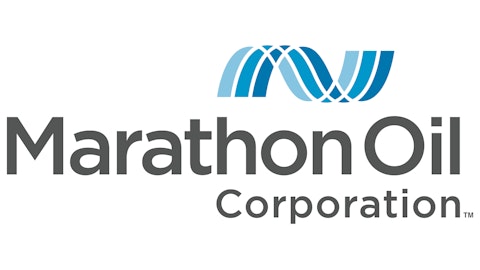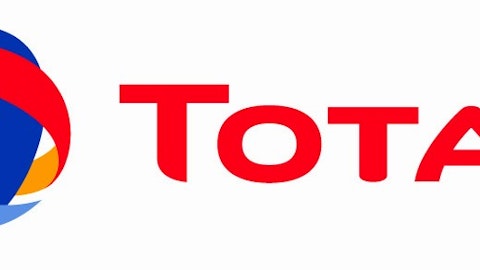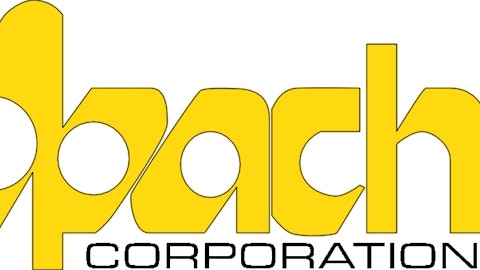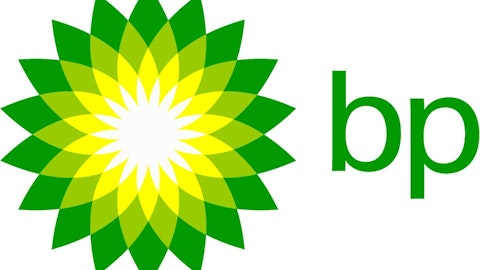International stocks are trading at a 35% discount to U.S. stocks according to Russ Koesterich, Chief Investment Strategist for BlackRock. Dividend investors looking for undervalued foreign stocks should take a look at Royal Dutch Shell plc (ADR) (NYSE:RDS.B), Eni SpA (ADR) (NYSE:E), and Total SA (ADR) (NYSE:TOT).
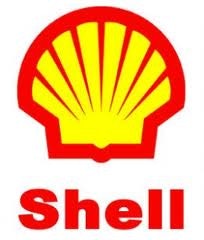
Still Room to Run
Koesterich believes that, overall, stocks can keep moving higher because he doesn’t expect the Federal Reserve to up rates since inflation isn’t a threat right now. While that would be good for U.S. equities, he is particularly fond of foreign stocks. “On a price-to-book basis, international developed markets are trading at a 35% discount to US stocks.”
Although Koesterich notes that Europe is still struggling financially, oil majors out of Europe offer dividend investors notable yields, relatively steady businesses, and access to the world’s seemingly insatiable appetite for oil.
Best Risk/Reward Option
Royal Dutch Shell plc (ADR) (NYSE:RDS.B) is among the world’s largest integrated oil and natural gas companies. With a recent yield of around 5.3%, it yields nearly twice as much as Exxon Mobil Corporation (NYSE:XOM).
The two companies, though, have notable similarities. For example, they both have global businesses and well recognized brands. Each provides investors a way to participate in oil and natural gas from the well to the gas pump. And both companies bet heavily on U.S. natural gas when natural gas prices were peaking.
Of course Royal Dutch Shell plc (ADR) (NYSE:RDS.B) has a material business in financially weak Europe, but that isn’t enough to justify such a large yield premium to Exxon Mobil Corporation (NYSE:XOM). In fact, Royal Dutch Shell plc (ADR) (NYSE:RDS.B) has notable experience in liquified natural gas, which is used more frequently in Europe than in the United States. That could put it in better position to benefit when natural gas prices recover.
Royal Dutch Shell plc (ADR) (NYSE:RDS.B)’s profit margins are hovering around 10%, that shows that it isn’t as efficient as Exxon Mobil Corporation (NYSE:XOM), which boasts profit margins in the mid teens. Still, with a yield twice as high as Exxon Mobil Corporation (NYSE:XOM)’s and long-term debt making up less than 15% of the capital structure at the end of the first quarter, Royal Dutch Shell plc (ADR) (NYSE:RDS.B) is probably one of the best options in the oil patch today.
In the Risky Fields
Eni SpA (ADR) (NYSE:E) hails from Italy. As far as Europe goes, that’s one of the worst performing countries, with an unemployment rate of around 12% at the end of the first quarter. However, Italy is uniquely situated in close proximity to Africa and the Middle East, which have notable oil and natural gas assets.
The company works hard to maintain solid rations with these nations and as a result has access to resources that are harder for other industry participants to reach. For example, the company is one of the biggest players in Africa. This provides investors an interesting way to invest in two regions that would otherwise be pretty inaccessible.
Eni SpA (ADR) (NYSE:E)’s yield is around 5.1%. However, it has more risk attached to it than Shell. While partnering with difficult nations is one potential risk, the bigger issue is that the Italian government has a large stake in the company. For example, the company has lagging operations outside of its core that appear to be dragging down overall results. It would be politically hard, but shareholder-friendly, to jettison those businesses. It’s not likely to happen any time soon.
Long-term debt makes up about a quarter of the company’s balance sheet and Eni SpA (ADR) (NYSE:E) has a long history of robust profitability (it earned over 6.60 euro a share last year). Income investors willing to take on the political issues should take a look.
French Giant
France’s unemployment is also over 10%. That’s a drag on the country’s economic fortunes and a black mark against Total. That said, while not as well known in the U.S. market, Total is an important global player in the energy market.
It earned over 4.70 euro a share last year and long-term debt makes up less than 25% of Total’s capital structure. Despite the weakness in its home market and Europe, it is making plenty of money and has the financial strength to survive over the long haul. On this basis alone, the oil major with its around 4.1% yield is worth a review by income seekers.
However, the company has a strong position in the chemicals industry, has been investing heavily to find new reserves, and, like Shell, has years of experience in liquified natural gas. And, Total SA (ADR) (NYSE:TOT) has a long history of dealing with the same “troublesome” nations as Eni SpA (ADR) (NYSE:E). It isn’t as attractive as the other two oil majors presented here, but it is a solid industry participant.
The World Loves Oil
There’s little doubt that the world runs on oil. That’s not going to change any time soon and buying companies that fill that need is a good option for dividend seeking investors. Shell is among the best risk-adjusted ideas in the oil patch today. Eni SpA (ADR) (NYSE:E) and Total both have more risk attached to them, but remain interesting options yielding notably more than U.S. counterparts like Exxon.
Reuben Brewer has no position in any stocks mentioned. The Motley Fool recommends Total SA. (ADR). Reuben is a member of The Motley Fool Blog Network — entries represent the personal opinion of the blogger and are not formally edited.
The article International Oil Stocks on the Cheap originally appeared on Fool.com is written by Reuben Brewer.
Copyright © 1995 – 2013 The Motley Fool, LLC. All rights reserved. The Motley Fool has a disclosure policy.
